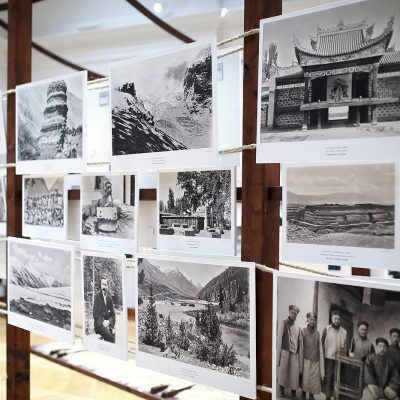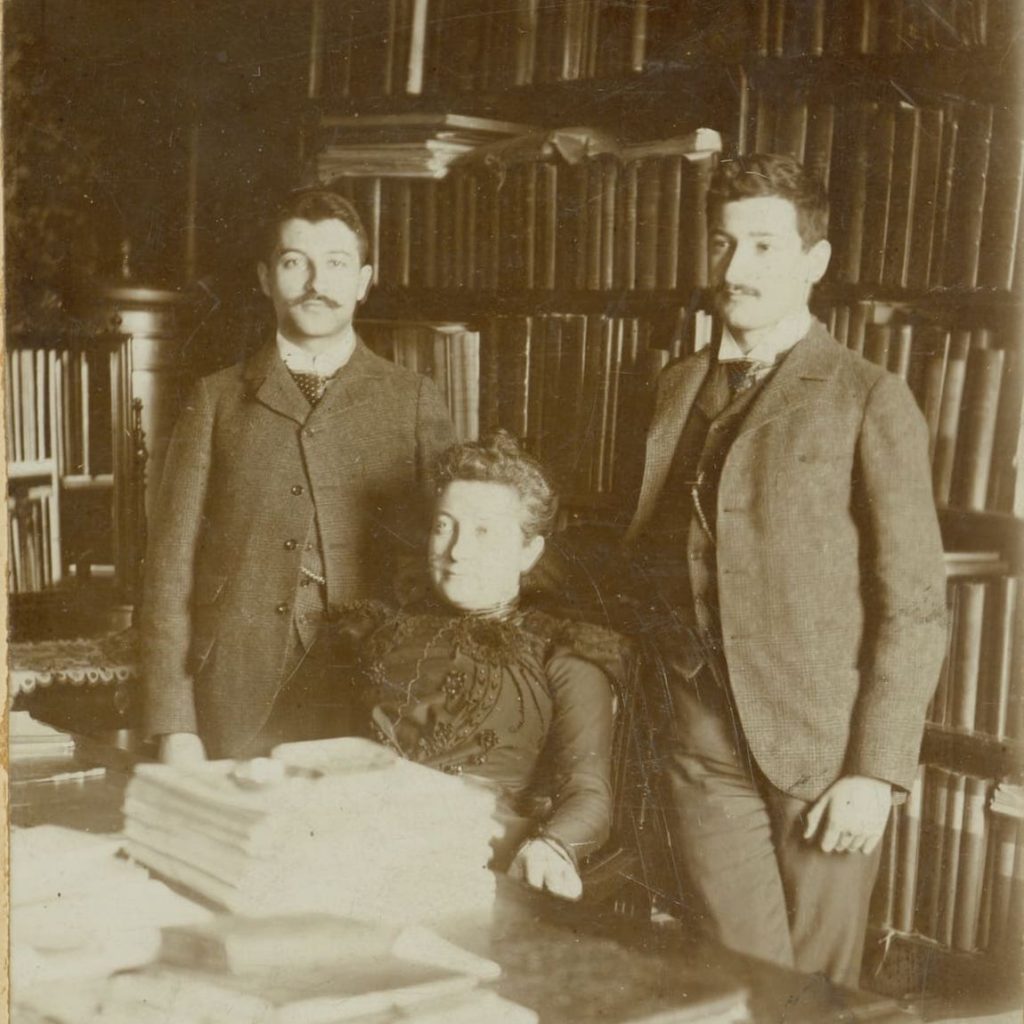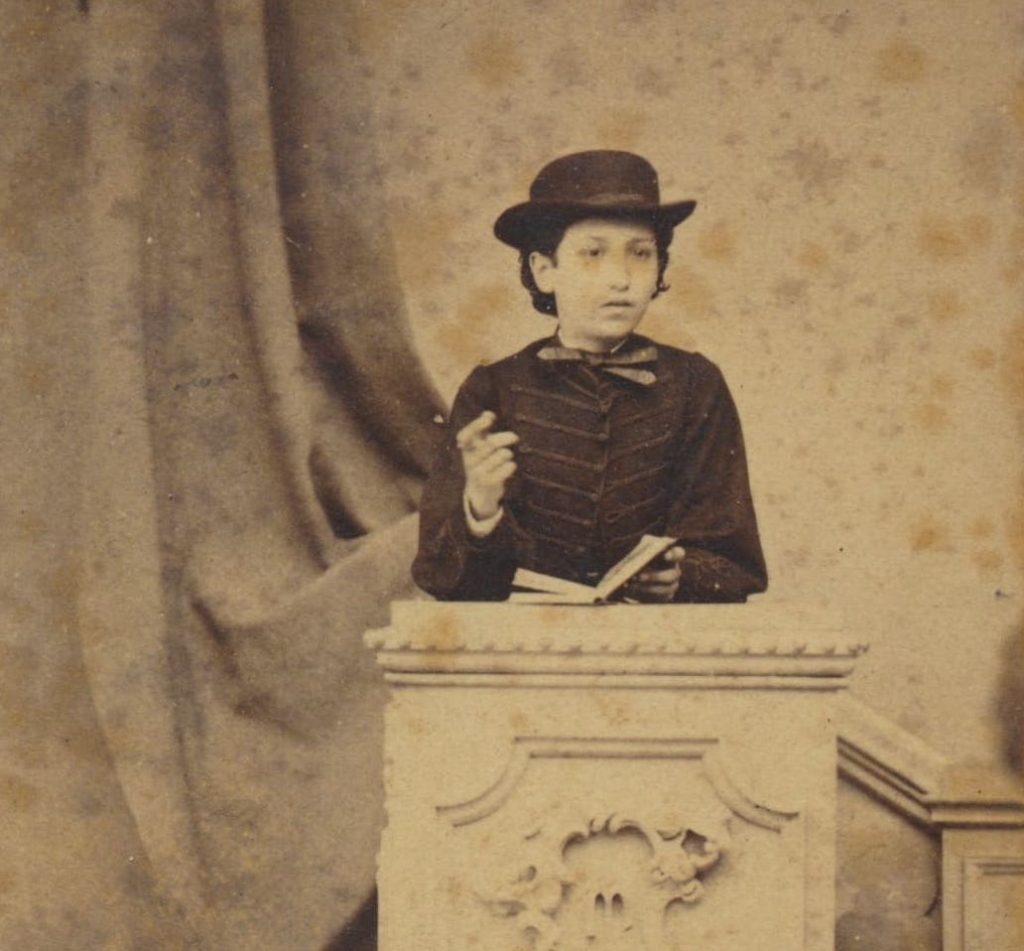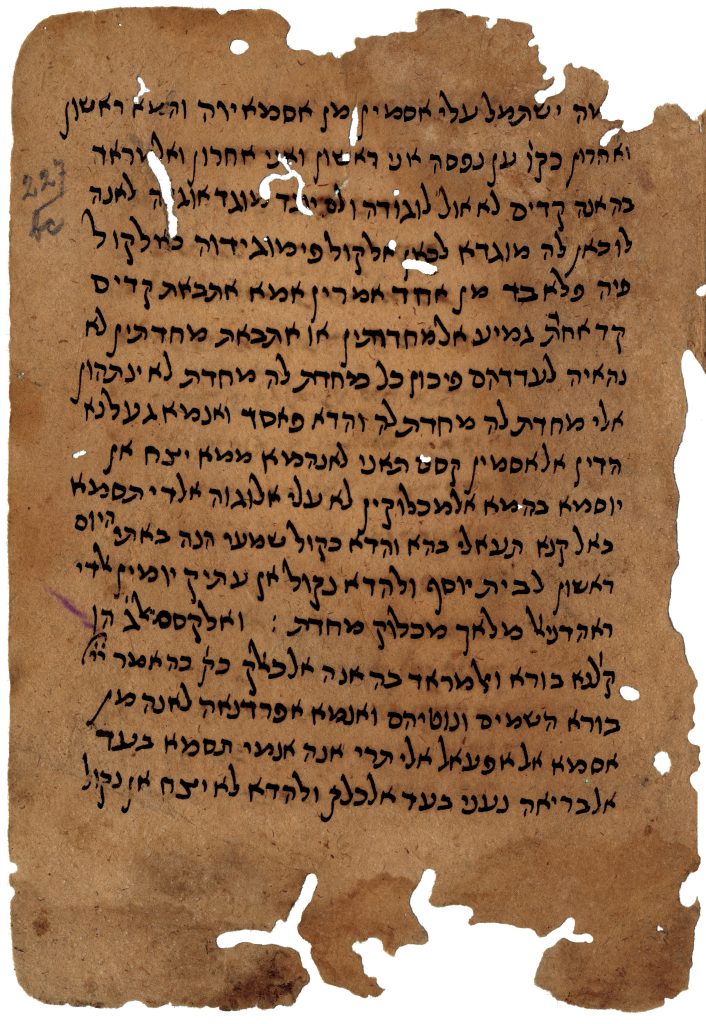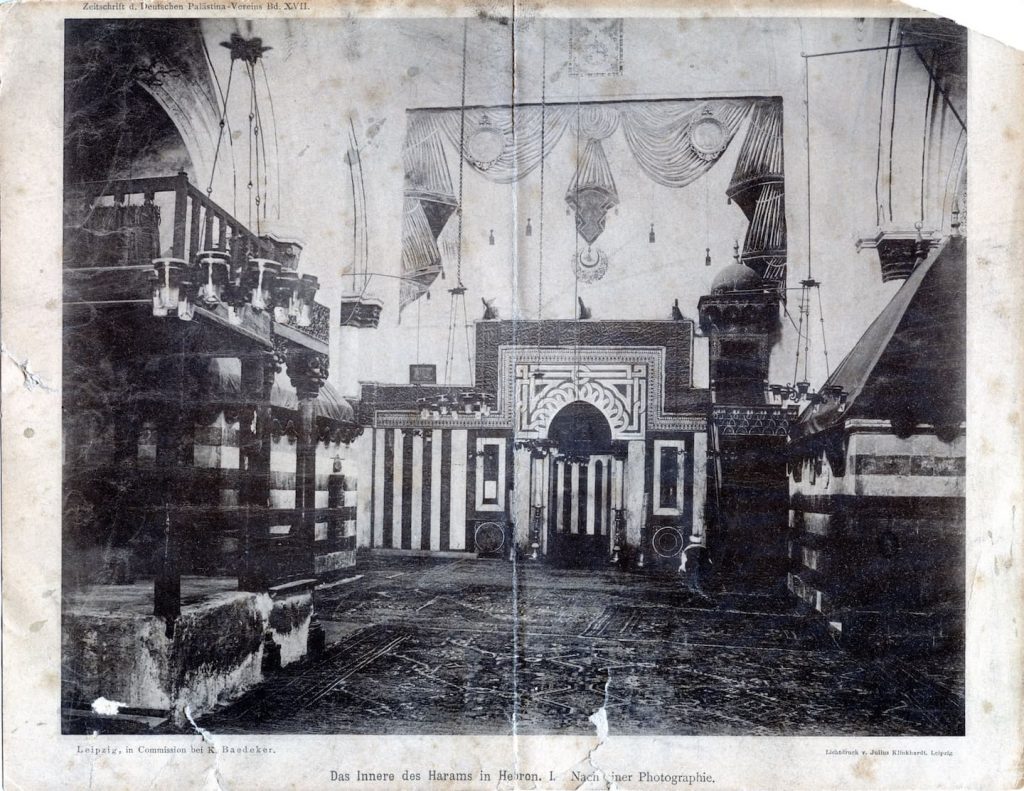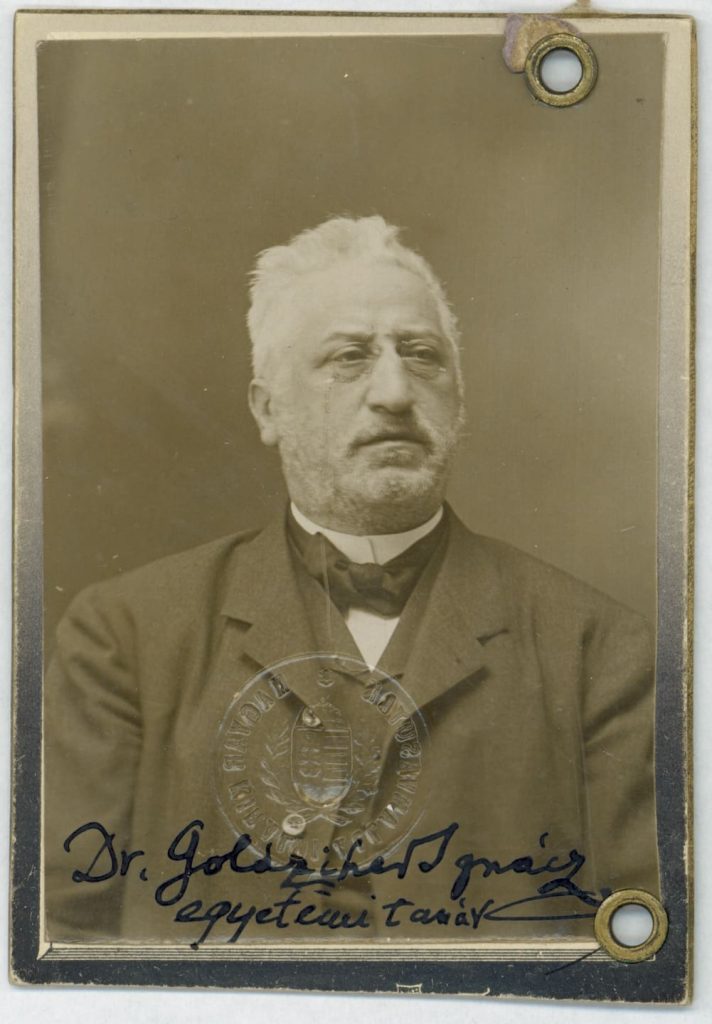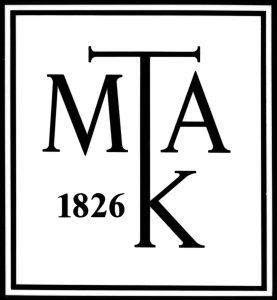Memorial Website of Ignaz Goldziher
The Secretary of the Community
„A field worthy of my intentions: the educational affairs of the Jewish community”
At the age of 21, Ignaz Goldziher became a private docent of the University of Pest, the first one of the Jewish faith in such a position. He expected to be soon promoted to the Chair of Semitic Philology, as promised earlier by József Eötvös, but Ágoston Trefort, successor to Eötvös as Minister of Education and Religious Affairs offered the Chair to somebody else, and Goldziher could only become head of this department in 1905. He refused one by one professorships offered by the best foreign universities, and in order to make ends meet, in 1876 he agreed to become secretary of the Neolog Jewish community of Pest.
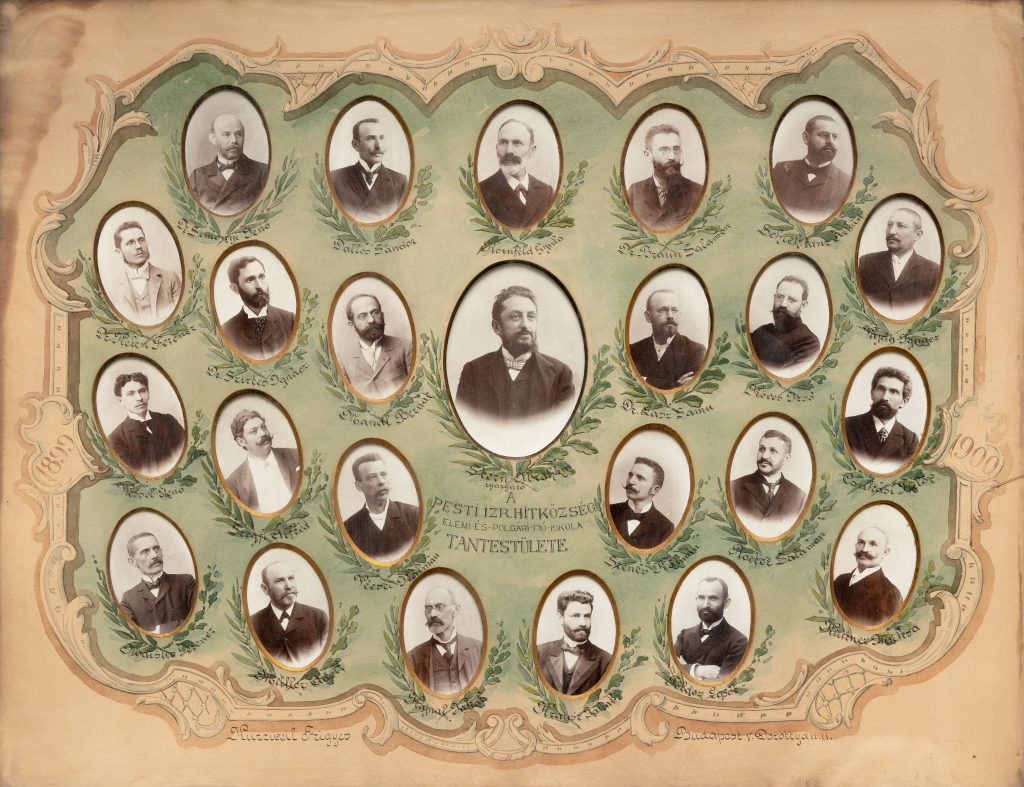
- Updated: November 6, 2021
- 15:24
According to his Diary, Goldziher felt this office to be a millstone around his neck, a humiliating sidetrack along his career path. His Diary, started in 1890, carries an entry concerning his acceptance of the secretarial job: “Now, it has been settled that I shall be a slave”, while on July 1st, 1905, when he finally resigned from the job, he wrote “From today, I shall be a free man, I have got rid of the dirtiest tie that has ever crippled a learned man’s life”. It is readily understandable that Goldziher was disheartened by the mainly administrative job that throughout decades restricted his time reserved for research. His dissatisfaction was not even alleviated by the fact that in the years before his resignation he became the highest-paid employee of the Jewish Community of Pest, his yearly 9400-crown salary having been higher than that of the rabbi of Pest, Sámuel Kohn, who was the first to preach in Hungarian.
A letter written on 24 June 1892 on behalf of the Jewish community of Köpcsény (Kittsee) asking Goldziher’s support for the renovation of the synagogue in the town where his forefathers had lived since the 18th century until his father moved to the town of Székesfehérvár.
Fulltext in REAL-MS repository
There was only one field of Goldziher’s diverse work for the Jewish Community in which he engaged whole-heartedly: educational affairs, more particularly religious instruction, which in those days was compulsory for all children, and to which Goldziher attributed fundamental significance in transmitting Jewish identity. With his guidance, the Community reorganized religious education in 1884, increased the number of religious teachers and instructors, introduced religious services for young people which was soon launched in other cities as well, and announced competitions for writing new schoolbooks. In 1885 the Jewish Community established the Organization of Religion Teachers of Pest, and selected Goldziher in 1886 to head it.
Greetings written by the board of the elementary and civil boys' school of the Jewish Community of Pest on the occasion of Goldziher's 60th birthday. The letter highlighted that Goldziher had been the spiritual leader of the community for three decades, devoting much of his work to the development of education.
Entire text in REAL-MS repository
In 1887 a new position, that of the inspector of schools was created, first filled by József Bárány, and from 1890 by the linguist and ethnologist Bernát Munkácsi. In 1891 Munkácsi published the “universal” curriculum of religious instruction which had been in preparation since 1882 for all different types of schools under the supervision of Goldziher. Thus, Goldziher’s perception prevailed in the spirit of this first universal curriculum of religious education for Hungarian Jewry.
Photo gallery
Related publications
Bibliographic items related to this content
Was this content useful?
Share with your colleagues!
Related pages
